**Note: This page is for educational inspiration and is not officially affiliated with Time to Talk Day. For official information, dates, and resources, please visit the Time to Talk Day website: www.timetotalkday.co.uk.
Thursday 5th February 2026
Understanding Time to Talk Day in EYFS & KS1
Let's use our voices and talk about how we feel! 🗣️💬 Time to Talk Day is an annual event in the UK, typically held in early February. It is a crucial initiative run by Mind and Rethink Mental Illness, in partnership with the Co-op. The day aims to encourage open and honest conversations about mental health, working to reduce the stigma often associated with it. It serves as a powerful reminder that mental health problems are common and can affect anyone, emphasising that simply talking about how we feel is a vital first step towards seeking support and recovery.
For early years settings, nurseries, preschools, childminders, and Year 1 and Year 2 classrooms, this day provides an invaluable and sensitive theme for exploring emotions, communication and language, active listening, empathy, and personal, social & emotional development (PSED). It's about creating a safe and welcoming environment where children feel comfortable expressing their feelings, understanding that it's okay not to be okay, and learning how to listen to and support their friends. This day offers fantastic planning ideas and inspiration for engaging activities that truly resonate with young minds, making learning about emotional well-being and support networks both foundational and empowering.
Why Is Encouraging Talk About Feelings Important for Young Children?
Integrating Time to Talk Day and encouraging open conversations about feelings into your practice with young children (aged 0-7) helps build their emotional resilience, foster healthy communication, and support their overall mental well-being.
Emotional Literacy: Helps children develop the vocabulary to identify, name, and understand a wide range of emotions in themselves and others.
Safe Expression: Creates a secure environment where children feel safe to share their feelings, knowing they will be heard and respected.
Problem-Solving Skills: Encourages children to articulate challenges, which is the first step towards finding solutions or seeking help.
Empathy and Connection: Promotes active listening and understanding of peers' feelings, strengthening friendships and reducing isolation.
Reduces Stigma: Normalises discussions about mental health from an early age, helping children understand that everyone has feelings and that it's good to talk about them.
Builds Resilience: Equips children with the early tools to communicate their needs and seek support when experiencing difficult emotions.
Engaging 'Time to Talk' Activities for EYFS & KS1 (0-7 Year Olds)
Make Time to Talk Day a truly open and supportive experience with these planning ideas and activities perfect for EYFS and KS1 children. The focus is on encouraging communication, understanding emotions, and building connections! Many of these early years and year 1 activities can be supported by our extensive 'Mental Health' resources.
Here's some inspiration for fostering open dialogue in your setting: (Please use your own discretion and knowledge of your children to ensure appropriateness of each activity and safety concerning any materials given and activity undertaken.)
Daily Feeling Check-in: Begin each day with a 'How are you feeling today?' circle time. Use 'Emotions - 'Emotion Of The Day' - Display (Large)' and 'Emotions - 'I Am Feeling...' - Emoji Cards' to help children articulate their emotions. Encourage them to explain why they feel a certain way.
Story Time About Feelings: Read stories that explicitly deal with different emotions or characters overcoming challenges. Discuss how characters feel and what they do. Afterwards, use 'Emotions - 'This Story Makes Me Feel...' - Mark Making' to encourage children to reflect on their own feelings about the story.
"Why is Teddy Feeling...?" Activities: Use 'Emotions - 'Why Is Teddy Sad?' Activity Pack' and 'Emotions - 'Why Is Teddy Happy?' Activity Pack' to explore different scenarios and the emotions they evoke, prompting discussions about cause and effect.
"Let's Talk About It" Prompts: Display 'Emotions - 'What Happens When You Feel...' - Prompt Cards' to spark discussions about various emotions and healthy ways to respond to them.
Connecting with Each Other:
Use 'Let's Connect - With Each Other - Activity Prompt Poster' and 'Let's Connect - With Each Other - Activity Prompt Cards' to inspire conversations and shared activities. This could involve "chatting pairs" or "tell a friend about..." activities.
Emphasise kindness as a way to support others. Use 'Let's Show Kindness - Activity Prompt Poster' and 'Let's Show Kindness - Activity Prompt Cards'.
Mood Boosting Activities: Discuss what makes us feel good. Use 'Mental Health - Mood Booster Activity Cards' to generate ideas for positive actions (e.g., listening to music, playing outside).
Music and Emotions: Play different genres of music and discuss how they make children feel. Use ''This Music Makes Me Feel...' various resources.
Mindfulness Moments: Introduce short mindfulness exercises to help children connect with their breath and calm their minds. Use 'Mindfulness - Activity Prompt Poster', 'Mindfulness - Activity Cards', 'Mindfulness Walks Poster', and 'Mindfulness Walk Cards'. Free samples like 'Beach - Mindfulness Scavenger Hunt Sheets' and 'Woodland Wildlife - Mindfulness Scavenger Hunt Prompt Cards' also encourage calm observation.
Physical Activity & Wellbeing: Discuss how moving our bodies can help us feel better. Use 'Let's - Get Moving - Activity Prompt Poster' and 'Let's - Get Moving - Activity Prompt Cards'. Other resources like 'Exercises - A4 Cards' or 'Dinosaur Activity/Movement Challenge - Cartoon' can inspire active play.
Role Play for Caring: Set up a 'Doctors Surgery Role-Play Pack’ or use 'Poorly Teddy - A4 Posters' to encourage children to role-play caring for others, including listening and comforting.
Promote Healthy Habits: Remind children about the importance of sleep and hydration. Use 'Mental Health - 'Sleeping Area' A4 Sign', 'Mental Health - 'Sleep' Banner', 'Mental Health - 'Amount Of Sleep' Poster', and 'Heat Health - 'Drink Some Water' Visual Communication Aid'.
Outdoor Exploration: Connect feelings to nature. 'Garden Birdwatch Mat', 'Minibeast Search Checklist', and 'Science - Activity Pack - Minibeast Hunt' encourage outdoor engagement.
Display Healthy Minds: Reinforce the message with 'Mental Health - 'Healthy Minds' Poster' and 'Mental Health - 'Healthy Minds' Display Pack'.
Explore More: Please visit our 'Mental Health' page for an extensive catalogue of resources.
These activities offer great inspiration for making Time to Talk Day a memorable and impactful experience in your early years and Key Stage One setting, fostering open communication, emotional literacy, empathy, and building a supportive environment for children's mental health.
To explore ideas surrounding additional early years events, please visit our 'Special Dates Calendar' page.
Printable resources to support teaching & learning surrounding: ‘Time to Talk’
Please visit our ‘Mental Health’ page for an extensive catalogue of resources.
Please visit our ‘Mental Health’ page for an extensive catalogue of resources.
Additional Pages you may like to explore which cover relevant &/or Connected themes
More Early Years Event Pages for February
Let's learn about magnificent polar bears and their icy homes! 🐻❄️🧊 International Polar Bear Day is an annual event, celebrated globally on February 27th. It is organised by Polar Bears…
Once upon a time... it was a special day for magical stories! 👑🐉 Tell a Fairy Tale Day is an informal observance, typically celebrated annually on February 26th. While its precise origins…
Let's show our furry (or scaly, or feathered!) friends how much we care! ❤️🐾 Love Your Pet Day is an informal observance, typically celebrated annually on February 20th. While its precise…
Let's give our feathered friends a home! 🐦🏡 National Nestbox Week is an annual event in the UK, organised by the British Trust for Ornithology (BTO). It typically runs from February 14th…
Let's sprinkle kindness everywhere we go! ✨💖 Random Acts of Kindness Day is an annual observance, celebrated globally on February 17th. This day is often part of a broader 'Random…
Let's learn how to keep our teeth healthy and happy! 🦷😁 National Toothache Day is an informal observance, typically celebrated annually on February 9th. While its precise origins aren't widely…
Let's make our friends smile with a special card! 💌😊 Send a Card to a Friend Day is an informal observance, typically celebrated annually on February 7th. While its exact origins aren't…
Let's count our way to helping children! ➕➖ Number Day is an exciting annual fundraising event for schools across the UK, organised by the NSPCC (National Society for the Prevention of…
Let's use our voices and talk about how we feel! 🗣️💬 Time to Talk Day is an annual event in the UK, typically held in early February. It is a crucial initiative run by Mind and Rethink Mental…
Let's talk about our feelings and feel good! 😊💭 Children’s Mental Health Week is an annual event in the UK, organised by Place2Be, a leading children's mental health charity. It typically takes…
Splash into learning about wetlands! 🏞️🐸 World Wetlands Day is an annual observance, celebrated globally on February 2nd. It marks the date of the adoption of the Convention on…
Once upon a time... there was a special week for stories! 📚🗣️ National Storytelling Week is an annual event in the UK, organised by the Society for Storytelling. It typically takes place during…
Chirp, tweet, let's count the birds! 🦜🦅 The Big Schools’ Birdwatch and The Big Garden Birdwatch are annual citizen science events organised by the RSPB (Royal Society for the…
Explore special dates (including awareness dates, festivals, celebrations & events) relevant to your EYFS & KS1 children
Browse our ‘Special Dates Calendar’ page using the link below. You’ll find calendars for every month of the year to aid your planning!
CLICK HERE to visit our ‘SPECIAL DATES CALENDAR PAGE’ for an entire year of key EYFS & KS1 events, festivals & celebrations.
SEARCH ‘LITTLE OWLS Resources’ USING THE FOLLOWING MENU BUTTONS…
Disclaimer:
This page is for educational purposes only and is intended to support early years and primary practitioners with ideas and resources related to 'Time to Talk Day'. We are not officially affiliated with or endorsed by Mind or Rethink Mental Illness (in partnership with Co-op), which organise this event, other than providing their official website as a source of information about the initiative. We do not claim any rights to specific trademarks or official materials associated with this event. For official information, dates, and to learn more about the campaign and mental health, please visit their website at www.timetotalkday.co.uk.






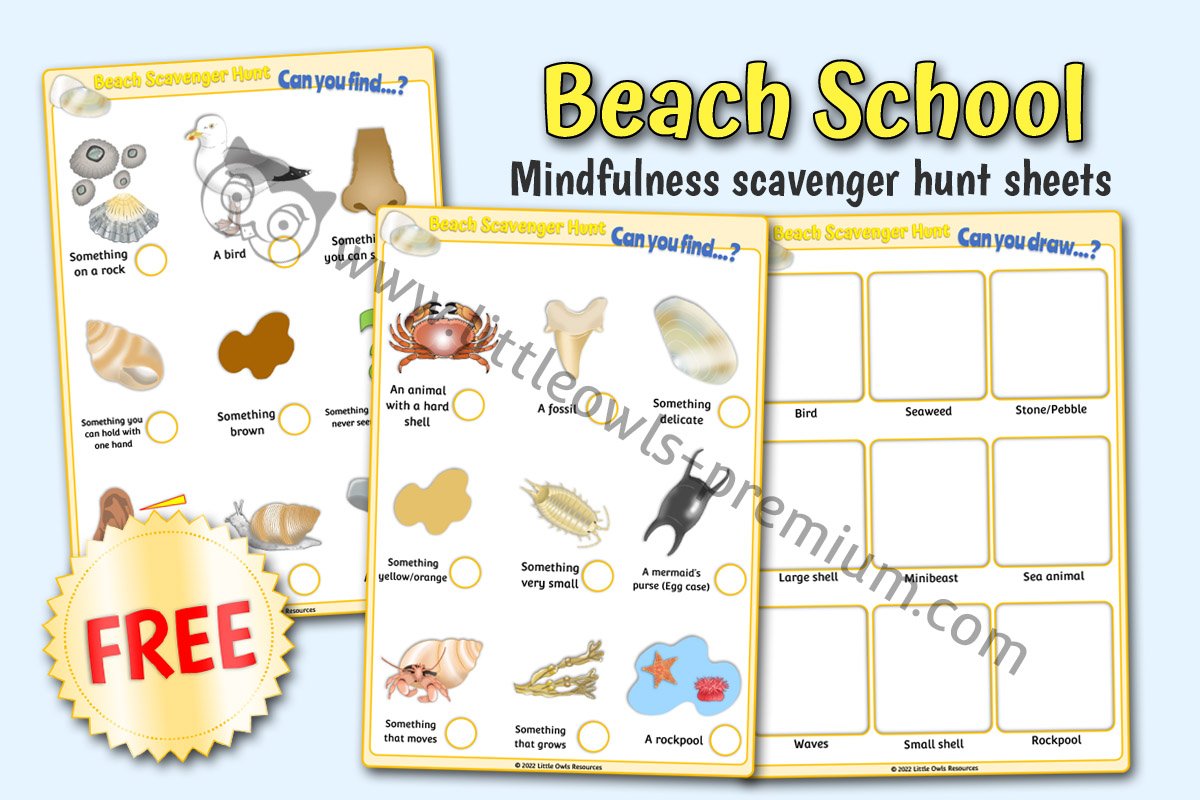





















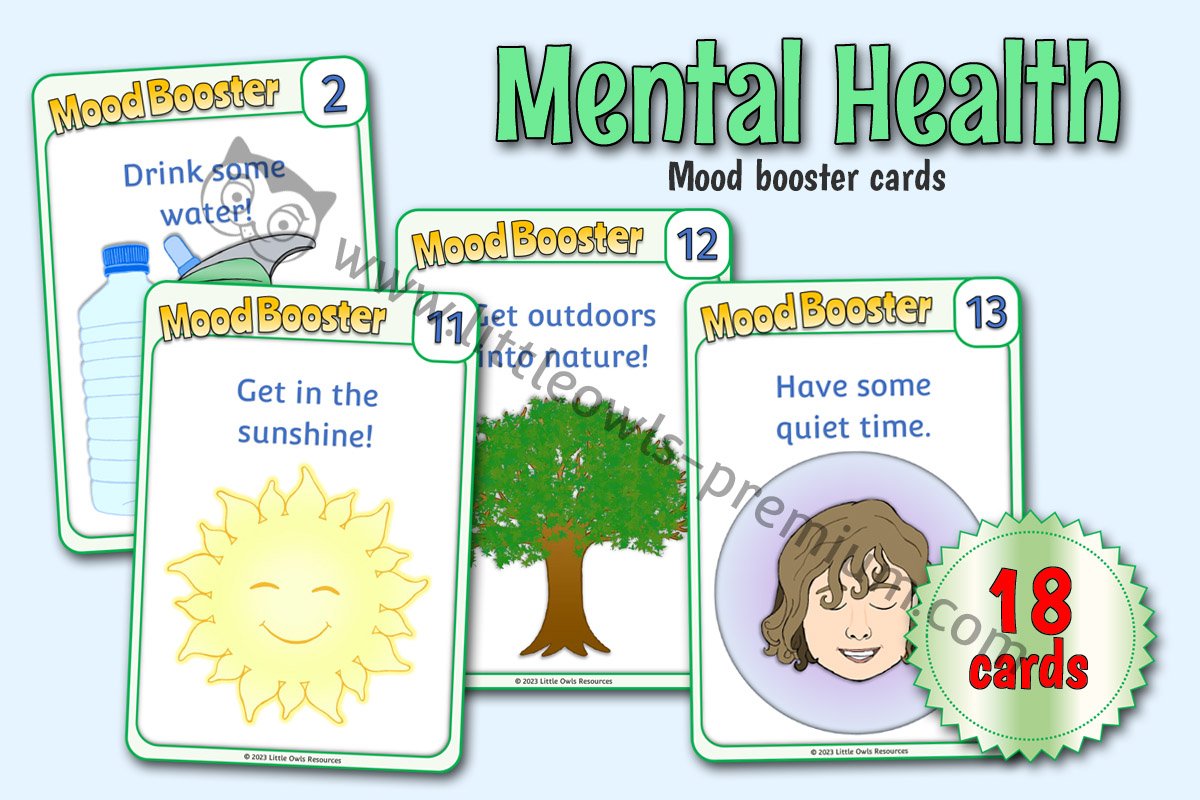






















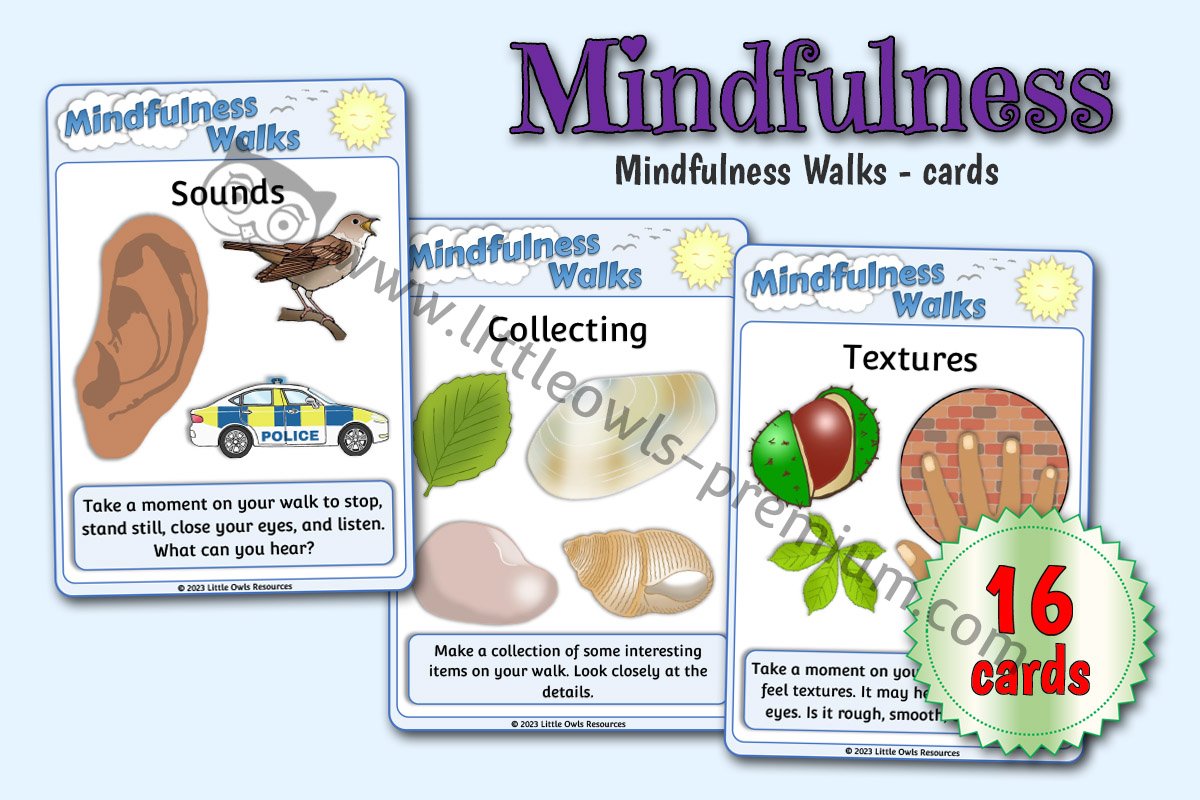
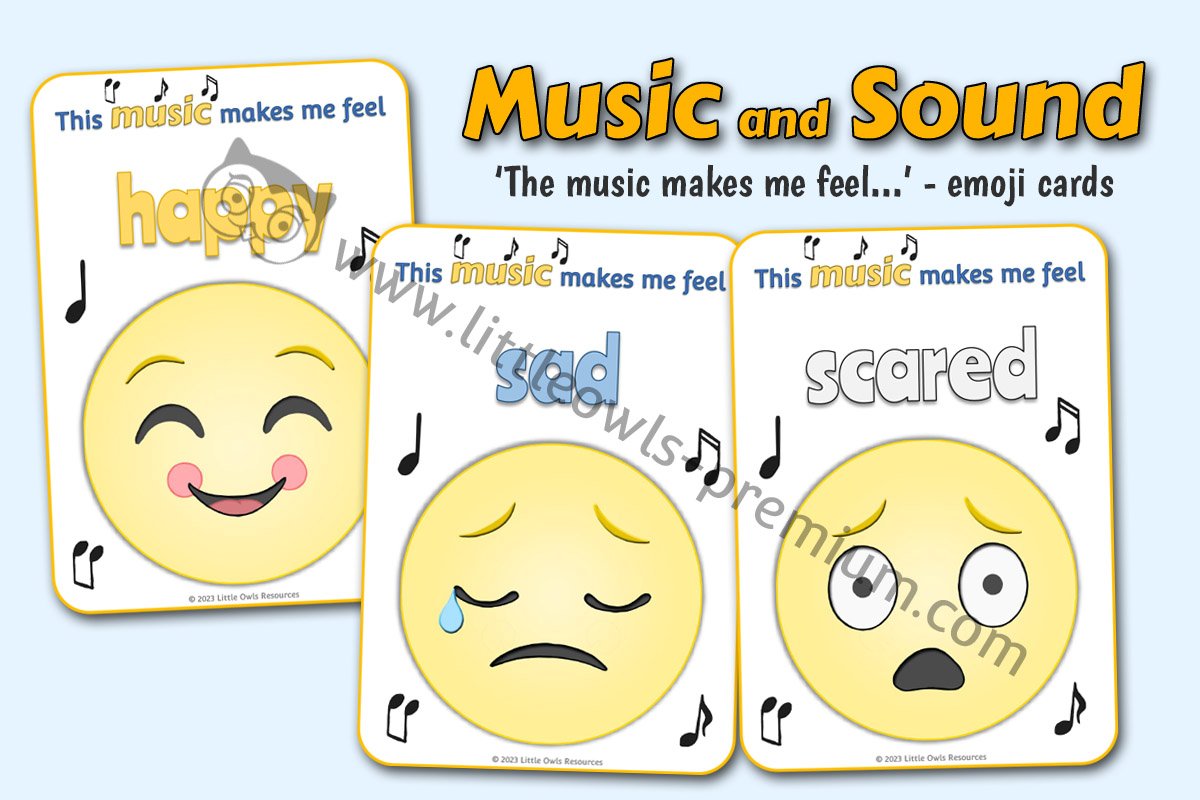



























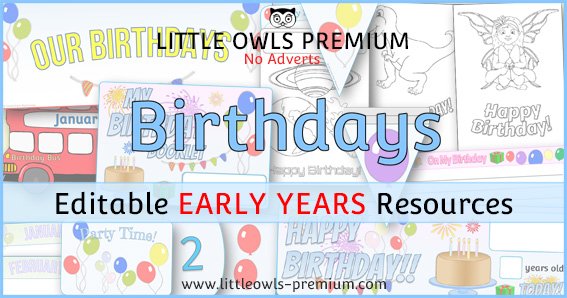
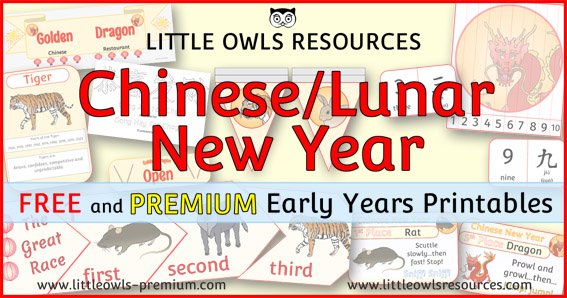
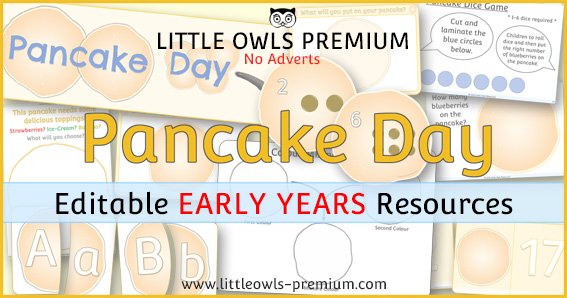















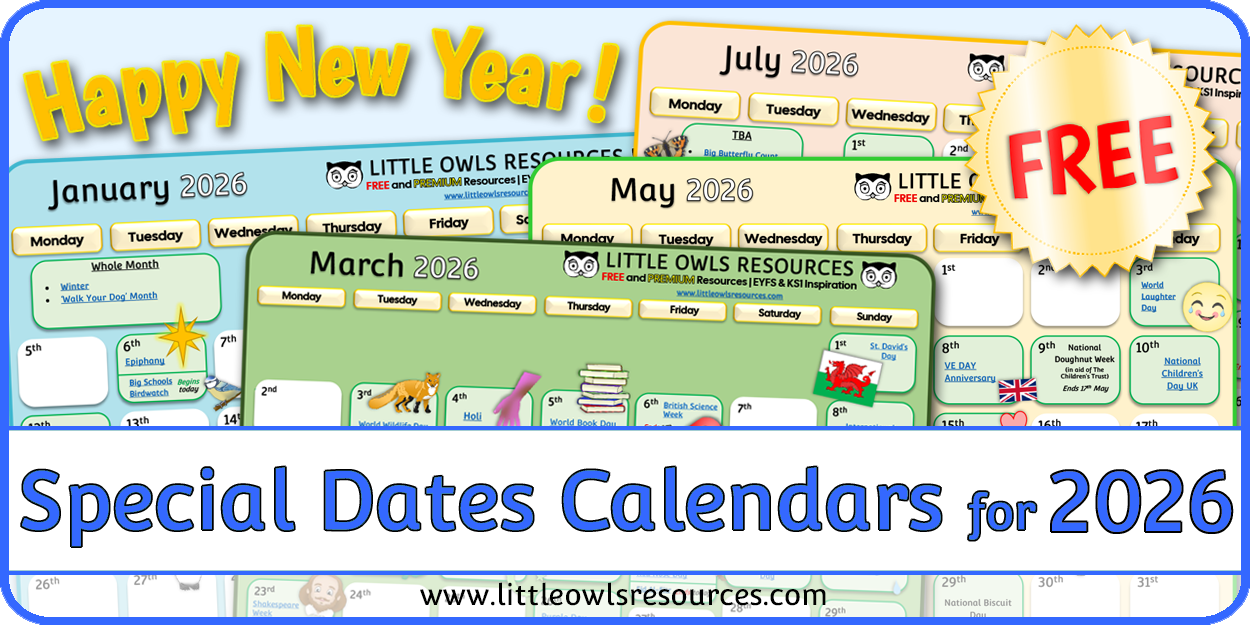
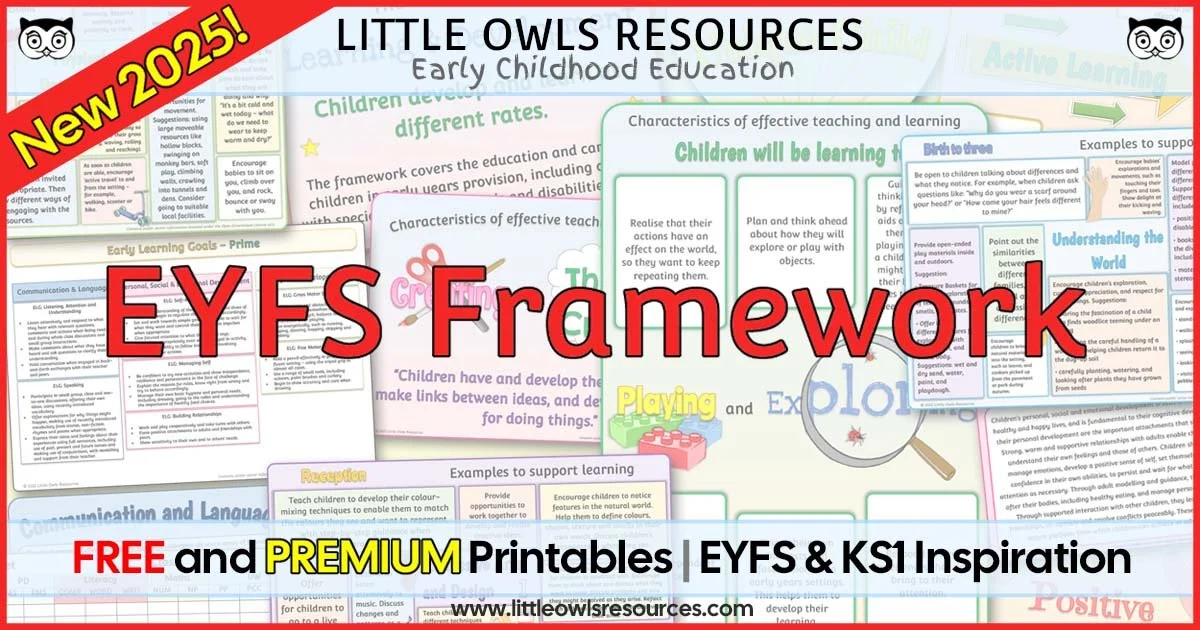

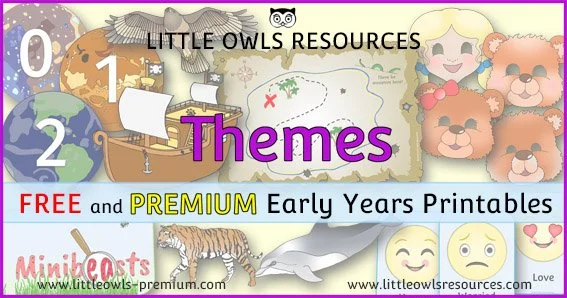

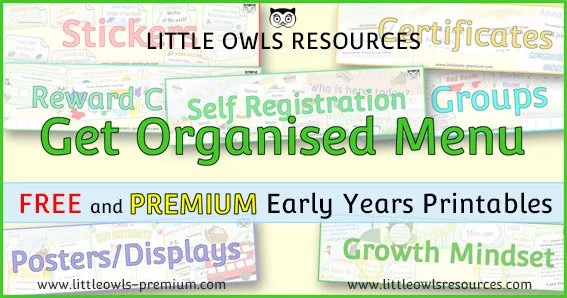

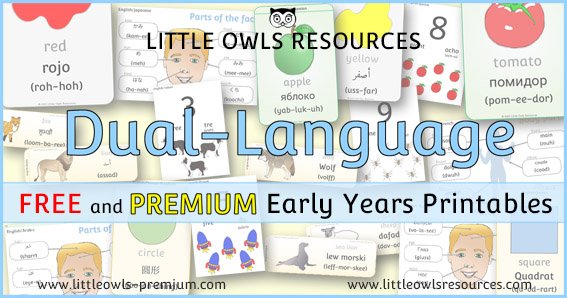
Let's wear something red and learn about our amazing hearts and helping others! ❤️🔴 National Wear Red Day is a special yearly event organised by the Children's Heart Surgery Fund…